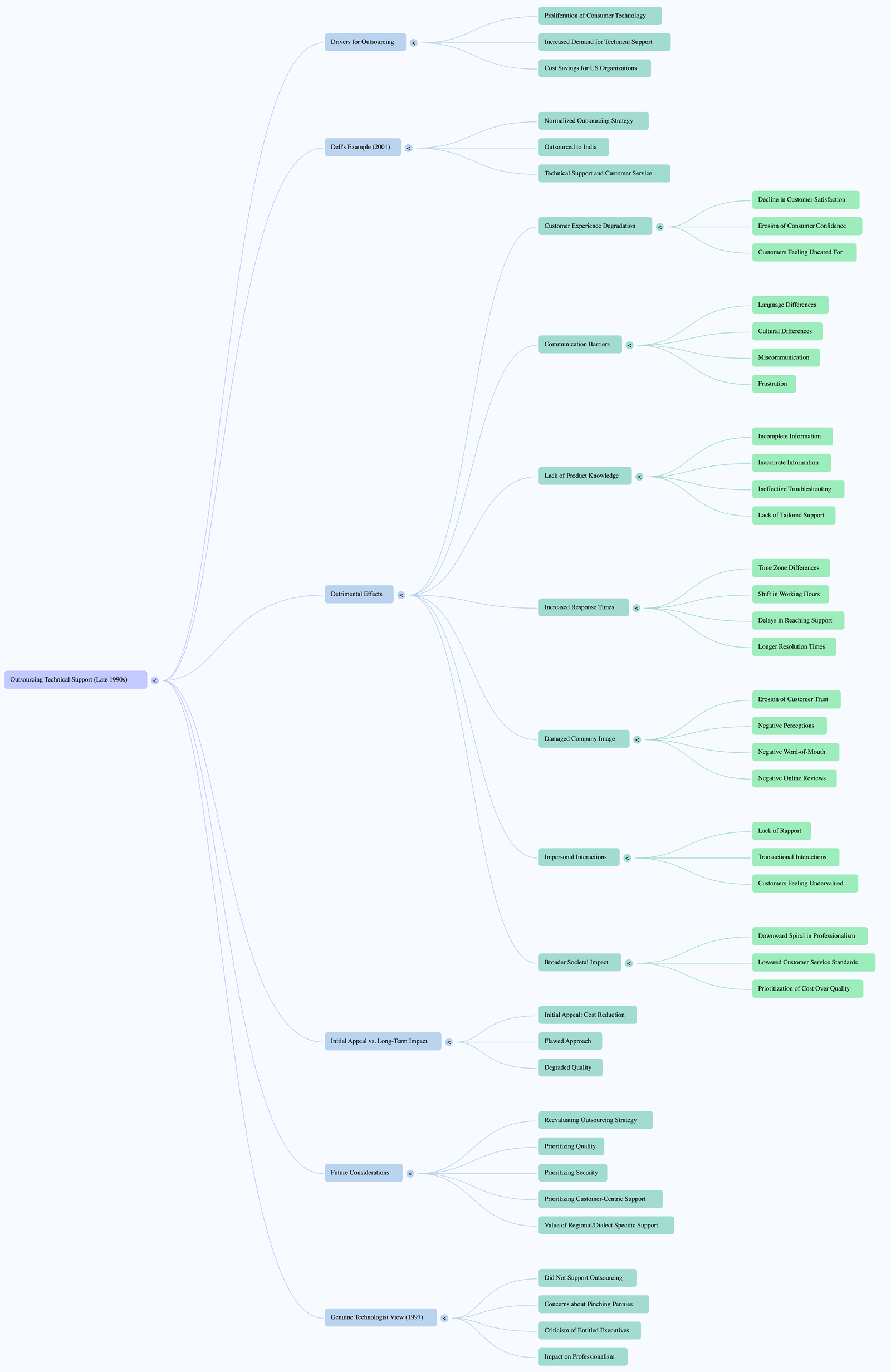Back in the late 1990's, the proliferation of consumer technology led to an increased demand for technical support services. To meet this requirement and to save money while doing it, many US organizations chose to outsource their technical support departments or call centers to countries with lower costs. One notable example was Dell, which normalized the strategy by outsourcing its technical support and customer service departments to India in 2001. However, this shift towards outsourcing has had detrimental effects on the quality of customer experience and has fostered a downward spiral in the level of professionalism and quality in the entire customer service industry. This has permeated other facets of modern business and society itself.
The decision to outsource technical support has resulted in a unprecedented decline in customer satisfaction levels and overall consumer confidence. People have started to think that companies do not care about customers. Customers often encounter difficulties communicating with support agents due to language barriers and cultural differences. This not only happened over the phone but eventually the effect permeated into real life interactions and across industry lines as the standards plummeted and everyone went for the cheapest methods they could find including the lowest cost workforce to get the job done. Accents and language proficiency issues can make it challenging for customers to understand and be understood, leading to frustration and miscommunication. This degradation in customer experience undermines the company's reputation and erodes customer loyalty. Customer service issues of this sort are easily remedied by regional and dialect specific service representatives who deal with customers from a matching region or language population but this cost money and at the end of the last millennium, money became the single driving factor in the public corporations mindset.
Outsourcing technical support has led to a lack of in-depth product and service knowledge among support agents. These outsourced agents may not possess the same level of familiarity with the products and services as the internal employees of the company would. Consequently, customers may receive incomplete or inaccurate information, leading to ineffective troubleshooting and problem resolution. The absence of specialized knowledge also hampers the ability to provide efficient and tailored support to customers' unique needs.
The outsourcing of technical support often results in increased response times and reduced availability of support services. Time zone differences and shifts in working hours create limitations in providing prompt assistance. Customers may face delays in reaching a support representative or have to wait longer to receive resolution for their issues. This diminished availability can be particularly frustrating during critical situations or when urgent support is required, negatively impacting the overall customer experience.
Outsourcing technical support has the potential to tarnish a company's image and erode customer trust. When customers feel that their concerns are not adequately addressed or their problems are not resolved satisfactorily, they may develop negative perceptions of the company and these days retaliate online via review portals and social media. Word-of-mouth and online reviews that highlight poor customer experiences spread quickly, damaging a brand's reputation and deterring potential customers from engaging with the business.
By outsourcing technical support, companies sacrificed the ability to provide high quality and personalized assistance to their customers in return for payroll savings. Internal employees who have a deeper understanding of the company's products and services could offer tailored solutions and build rapport with customers but instead they were simply replaced by cheaper means. However, outsourced support agents lacked familiarity, leading to a more impersonal and transactional interaction which in turn spiraled down to the levels of minimal customer service and support experienced worldwide today. This impersonal approach has left customers feeling undervalued and dissatisfied with the level of support they receive.
While outsourcing technical support may have initially seemed like an appealing solution for businesses to reduce costs and focus on core operations, it has proven to be a flawed approach that degraded the quality of the customer experience and changed society itself. The language barriers, lack of specialized knowledge, increased response time, and impersonal interactions have all contributed to declining customer satisfaction and damaged company reputations as well as professionalism across society as a whole. As businesses now again seek to provide exceptional customer service in order to improve their bottom lines, it is crucial to reevaluate the outsourcing strategy and consider alternative approaches that prioritize quality, security and customer-centric support. Genuine US technologist did not support outsourcing in 1997 and we still don't. Pinching pennies is not always a good idea and this effort by out of touch entitled executives, who had never started at the bottom and had no idea what it was like to make it via hard work, dedication and professionalism helped to usher in an entire era of sub-standard performance which in turn helped lower the importance of professionalism as a societal norm. A domino effect of disastrous consequences.
AUDIO PODCAST:
MAPPING:
